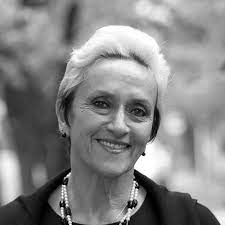
Once upon a time elected members brought skill and will to the management of council, but today they often need a lot of managing themselves, writes Fabian Dattner.

Community members who put their hand up to represent the wider community in council should be congratulated.
It is an act of generosity, one that reflects a commitment to being of service, rather than one that provides access to power, as individual councillors effectively have no direct power.
It is the collaborative efforts of the elected body to make decisions on behalf of local government through formal processes where the power really lies.
Councillors are meant to represent their local community’s needs, wants and aspirations and make important decisions on behalf of them.
They make decisions on policy, agree on annual budgets, approve programs of capital funded works, adopt the annual financial statement and the county or community development plan, and examine local area plans and strategies, and quite a bit more.
This all sounds reasonable, fair, and useful, doesn’t it? Good people doing the right thing, supporting the employed members of the council on behalf of a community who are thoughtfully engaged in the power and influence of local government.
However, there are three flaws in this paradigm:
- Often those putting themselves forward for election as councillors are unskilled
- Those employed in councils have developed significant skills in recent times, technically, cognitively and emotionally (and are therefore more effective than councillors)
- Communities don’t care much either way other than when things go wrong or there are issues in which they are personally invested
Clearly, the role of councillors needs updating.
The quality of employed staff in councils Australia-wide has taken a massive hike. Today, most staff are educated, informed and technically capable, as well as caring deeply about what they do.
Once upon a time elected members brought skill and will to the management of council, but that is no longer as critical as it once was. Today they often need a lot of managing themselves.
Rather than a need to ‘keep the bastards honest’ (a phrase I have heard more than once as a reason to get elected), staff are generally impeccably honest and there is no specific need to represent a local issue or faction, as well-informed community plans are consultative, thorough, and thoughtful, as well as forward looking.
Councillors and council staff should be working as a team, but are they able or willing to do so?
Communities themselves often don’t care about council elections; they vote because they get fined if they don’t.
But how many community members really know their candidates or what they are voting for? In very large councils, when the community is removed from the people who work for them, residents are possibly more inclined to complain and grumble about public works than educate themselves on what council is doing for them, and, therefore, the issues and initiatives that we are voting for. How many people think it’s all about road maintenance, rubbish collection and sporting facilities?
A challenge to consider is that those who run for public election necessarily have the time to do the work and so are frequently over a certain age, are issues based, and likely have no leadership education, such as in how to work in a team. They represent only the people who elected them directly, rather than the whole community.
Sometimes the dysfunction in elected members spills over into the community. Slinging matches emerge on social media, in the local rag or, quite literally, in the street. Some old timers think this is fine. They give themselves permission to behave in a way that is unacceptable in any other sector.
At its worst, coupled with bad financial skills, aggressive, hostile and dysfunctional councillors are suspended, and an administrator is appointed.
And then eventually, sometimes, the same individuals are reinstated with little or no change.
Here are six things you can do to mitigate relationships and build skill:
- Hive off budget to ensure development is given to councillors from induction
- Ensure development focusses on self-awareness, leadership style and collaboration
- Assume people have no, or limited expereience on what distinguishes high performance in teams
- Help councillors to develop an agreed charter of behaviour; hold them to it
- Ensure councillors have time apart from formal process, in workshops, to build team skills
- Ensure councillors’ specific and legal charters are visible and regularly referred to, particularly in public domain
And finally, to executives and CEOs/GMs, if you have had a lot of negative publicity and councillors are amplifying this – including poor behaviour between individuals or saying nasty things about staff in public domain – don’t get defensive.
Respond neutrally and constructively. Publish positive stories about what you do, amplify the contribution of staff, create and reinforce the link to the community. The ratio needs to be 10:1 – ten uplifting stories to one critical.
Feeling good about what you all do matters. Ensuring that this is visible to both the council and the community is essential.
*Fabian Dattner is CEO at leadership consultants Dattner Group.
Comment below to have your say on this story.
If you have a news story or tip-off, get in touch at editorial@governmentnews.com.au.
Sign up to the Government News newsletter